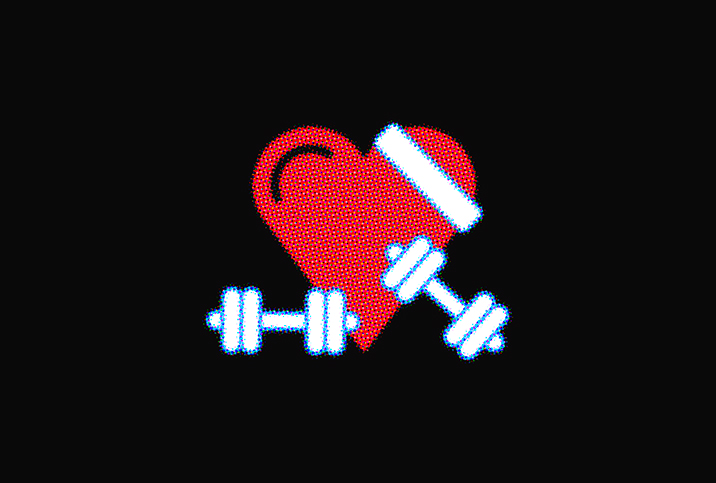Is Your Lifestyle Contributing to Your ED?

Occasional issues with maintaining an erection during sex are relatively common and generally not something to be concerned about. However, if you are experiencing erectile dysfunction (ED) routinely, consider seeing a doctor. Before considering oral medications or intracavernosal injections, you might find that switching some of your behaviors and making healthier lifestyle choices can have a big impact in the bedroom.
And remember: If you're suffering from ED, you are not alone, as the condition impacts about 30 million men in the United States, according to the Urology Care Foundation. While a number of physical and psychological factors contribute to ED, lifestyle ones such as diet, exercise, smoking and alcohol consumption can also add to erection woes. Here are five lifestyle factors that could be contributing to your ED.
Poor diet
Your ability to get and stay hard is based on the quality of the blood flow to and within the penis. The same poor diet that contributes to heart attacks—one high in saturated fat and cholesterol—can also affect erections.
Eating a well-balanced and nutritious diet can help you manage ED. Cut back on fats and sugars and add more fruits and veggies to your diet. Research has indicated that ED is less common among people who eat a Mediterranean diet, which includes fresh fruits and vegetables, fish, olive oil, legumes and little or no red meat.
A study of more than 25,000 middle-aged males published in the American Journal of Clinical Nutrition suggested that the men who ate the most flavonoids had an approximately 10 percent reduced incidence of ED compared with the men who ate the least. The risk of ED decreased by up to 19 percent in men who consumed flavonoid-rich foods such as blueberries, strawberries, apples and pears.
Sedentary lifestyle
One of the main contributors to ED is poor vascular health due to a sedentary lifestyle. Your vascular health can be significantly improved through regular exercise, with as little as half an hour of walking each day associated with a 41 percent drop in the risk for ED.
Some studies have shown that moderate exercise might help restore sexual performance in obese, middle-aged men suffering from ED.
Try to start and stick with a regular exercise plan. The key to consistency is to find an activity that you enjoy, such as riding a bike, so you don't think of workouts as a punishment. For many men, moderate to vigorous exercise for 30 minutes each day helps them maintain a healthy weight.
Also, Kegel exercises aren't just for women. These exercises can benefit men with ED because they specifically strengthen the pelvic floor muscles, which support erections and encourage more blood flow to the penis.
Smoking
You already know smoking is bad for your vascular and sexual health. Since smoking damages the blood vessels, it can lead to a poor blood supply to the penis, resulting in ED. A study in the American Journal of Epidemiology found that ED is more likely in men who smoked at some time compared with men who never smoked. The study also indicated that cigarette smoking is a more significant factor for erectile dysfunction in younger men than previously thought.
A similar study in BJU International found that men who quit smoking were more likely to have improved ED symptoms than those who kept smoking.
Drinking too much
Much like smoking, you already know that consistent alcohol use is not great for your overall health. While some guys may enjoy the disinhibiting effects of alcohol that may temporarily make them feel horny, a lot can go wrong when you mix sex and alcohol. You've likely heard of "whiskey dick," when a night of drinking gets in the way of your erection. But heavy alcohol use, which is defined as 15 or more drinks per week for a man, can lead to a number of health problems, including high blood pressure, cancer and mental health issues.
Studies confirm that heavy alcohol use is among the top reasons that men experience
long-term sexual problems, including ED. Men who are dependent on alcohol have up to a 70 percent chance of suffering from sexual problems, including ED.
Not having sex regularly
Some research suggests that men who have sex regularly are less likely to develop erectile dysfunction than men who do not have sex regularly. Analysis of a five-year study of 989 men found that men who said they had sex less than once a week had twice the incidence of ED compared with the men who had sex once a week. Perhaps unsurprisingly, the study found that the risk for ED increased with a decrease in sex.
Some factors associated with ED, such as aging, can't be controlled. But, thankfully, men can switch their habits and choices in an effort to beat ED. Breaking bad habits and developing healthy new ones can go a long way toward preventing or resolving ED.
If lifestyle changes improve your overall health but erectile dysfunction persists, even intermittently, a wearable device free of the side effects of medication can restore sexual function. Eddie® is an FDA-registered Class II medical device designed to treat erectile dysfunction and improve male sexual performance. Its subtle size and fast-acting results allow you to treat your ED with more control. With Eddie, you don't need to wait for a pill to kick in, use an awkward pump, or subject yourself to painful injections or experimental treatments.
Though not an exhaustive list, the tips outlined above are worth incorporating into your life, and as always, consult your doctor to see if your ED is a symptom of an underlying and more serious health issue.


















